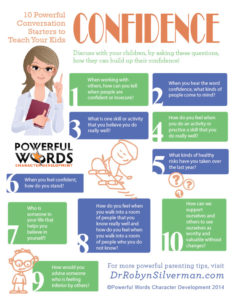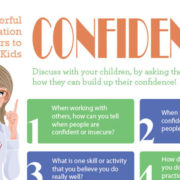 “I hate you!”
“I hate you!”
No…your child’s body has not been taken over by aliens. You do not need to clean out your ears. That’s right. You heard it correctly.
Any person who has ever said that “words will never hurt you” never had their child say “I hate you” to his face. You know. It has probably happened to you.
Being a parent is tough sometimes, isn’t it? You know in your head that your child does not really hate you. But when he utters those words…it’s hard not to feel a surge of sadness, frustration, hurt or anger.
We often don’t know what to do when our kids come out with these verbal lashings. It’s unexpected. Shocking. Isn’t this the little cherub that hugs you 20 times a day and can’t go to bed unless you’re there to kiss him goodnight?
When children are young, they don’t have the subtle language to beat around the bush. When they are angry, they say it. It’s normal. It just doesn’t feel like it when it happens to you.
So…what should you do?
(1) Look for the issue behind the words: Your child doesn’t always have the language to explain his frustration. When your child says “I hate you,” he might be having difficultly completing a task, attaining something he wants, or expressing a complex emotion like fear. As parents, we must become a detective and figure out what our children are really trying to relay.
(2) Help your child recognize anger: This is the first real step in anger management. If your child can recognize when he is feeling angry, he will have an easier time expressing and coping with the feeling rather than lashing out. Ask your child, “what does your body feel like when you are angry?” Help him to name it while it is happening, “I can tell by your face and your body that you are angry. You are having trouble turning your toy on. That’s very frustrating!” This will help to validate what your child is feeling and while also helping him to put a name to the emotion and the cause of the anger.
(3) Give your child the right words: When your child is calm, talk about what happened. Remind him of when he was feeling angry earlier in the day and what he said. Let him know that when he says “I hate you,” it hurts your feelings. Then ask him, “What can you say instead?” If he is unsure, give him the right words. “When you feel this way, instead of saying ‘I hate you,’ say, ‘I feel angry and I need help, please.” Help him to practice expressing his feelings so that when he is angry again (and he will be!), he can call on these skills.
(4) Provide calming techniques: We all get angry. Helping your child deal with anger in a constructive manner will be a gift that he can use for the rest of his life. Introduce and practice some techniques when your child is open to listening (not when in the heat of battle!). Counting to 10, singing a song, running in place, and talking to oneself, are some simple ways to calm down when angry. One of my favorite techniques I use with young children is to “smell the roses and blow away the clouds.” This is a powerful way to teach children to take a few deep breaths.
(5) Provide problem solving techniques: Let your child know that there are lots of ways to solve problems. If something isn’t working, try something else! You might say, “Could you help me put the wheel back on my truck?” or “maybe I should play with something else.” Help your child think about solutions that are safe, fair, and likely to be successful.
(6) Watch your own language: Regrettably, in this case, “monkey see, monkey do.” If you use harsh language in anger or you say “I hate” towards objects around your own house (i.e. I hate doing laundry; I hate carrots; I hate when the phone rings during your nap time), your child will pick up on it and use it himself. Unfortunately, such language might be directed at you!
Perhaps the most important thing for you to keep in mind while all this is happening is that your child doesn’t really hate you. So take a deep breath. Sometimes parents, too, need to remember to smell the flowers and blow away the clouds. After all, it is likely that clear skies are on the horizon.

Note: Some of this article was originally posted in Bay State Parent Magazine, 2008.
“I hate you!” Six Tips to Help Parents Deal with Their Child’s Angry Words is a post from: Dr. Robyn Silverman – Child Development Specialist, Body Image Expert, Success Coach & the Creator of the Powerful Words Character Development System
 Do you want your children to learn how to be confident but you aren’t sure how to start the conversation? The Powerful Word of the Month for June is Confidence! Confidence us a combination of trust, conviction and assuredness. Confident people are aware of their strengths (but don’t brag about them) and they also know their weaknesses and what they need to work on (but don’t shame themselves). They have a feeling of inner certainty and overall, believe in themselves.
Do you want your children to learn how to be confident but you aren’t sure how to start the conversation? The Powerful Word of the Month for June is Confidence! Confidence us a combination of trust, conviction and assuredness. Confident people are aware of their strengths (but don’t brag about them) and they also know their weaknesses and what they need to work on (but don’t shame themselves). They have a feeling of inner certainty and overall, believe in themselves.





 “I hate you!”
“I hate you!” Courage is the Powerful Word of the Month! How do we encourage our children to try new things? Meet new people? Stand up for what they believe in? Dr. Robyn Silverman, child and teen development specialist, answers one reader’s question about developing courage in her child. Several tips are provided– which ones resonate with you?
Courage is the Powerful Word of the Month! How do we encourage our children to try new things? Meet new people? Stand up for what they believe in? Dr. Robyn Silverman, child and teen development specialist, answers one reader’s question about developing courage in her child. Several tips are provided– which ones resonate with you?